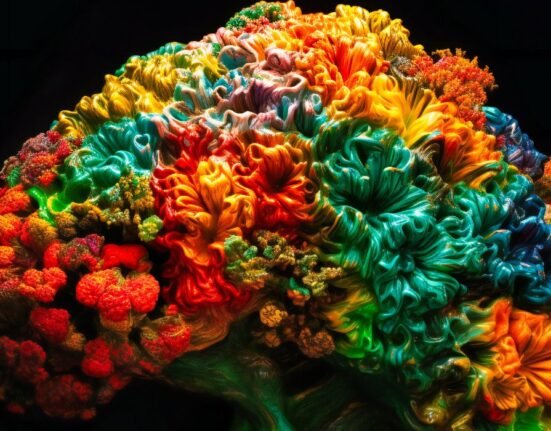Does it ever happen that you find yourself being hit by sudden blues and sadness and find solace in your comfort food? Do the feelings of uneasiness or being on an emotional high lead you to scavenge your refrigerator for something to eat? When our body’s general response to feeling emotional is seeking food to eat, it is called emotional eating.
Read More: Eating Disorder: Causes, Types And Symptoms
In this article we try to understand what emotional eating is, why it occurs, and how, when it gets detrimental, it can be dealt with.
What is Emotional Eating?
Food is important for survival. Most of the time, humans eat food to satisfy physical hunger. Emotional eating works as a coping mechanism and is the brain responding to stress, anxiety, sadness, or sometimes even happiness (Eating Disorder Hotlines for 24/7 Crisis Help | NEDA Alternatives, n.d.). The urge to eat is not due to hunger but rather emotions. Emotional eating is not an unusual phenomenon. It is highly common. Sometimes people also indulge in it unconsciously.
Studies have shown that 75% of the time, it is emotions that drive our urge to eat. Furthermore, according to the 2023 report from the American Psychological Association, it has been revealed that 38% of adults indulge in eating unhealthy food or even overeat when they are suffering from stress. Barak et al., (2021) found that 20.5% of their research sample regularly indulged in emotional eating. In a survey conducted in Germany, it was found that almost 50% of participants acknowledged themselves as stress-eaters. 68.9% stated to eat often and more than they usually do in stressful situations (Gemesi et al., 2022).
Stress and Emotional Eating
The reward system of the brain is known to activate when we eat food. This in turn helps us feel better. Many of the studies done on emotional eating are linked to stress. This is perhaps because there is a biological connection between these two factors.
Stressful situations trigger the release of a hormone called cortisol. This hormone is also released when an individual is upset. The release of this hormone is what causes cravings for sugar, fatty substances, and all that deliciousness. This is probably because cortisol is linked to the fight-and-flight response, and during this phase, the brain thinks that one needs all the calories to survive a situation. So when you crave junk food when you’re emotional and upset, it’s your body’s ancient biology’s doing.
Further, dopamine, the hormone that makes us feel good is also released when we eat food. Food commercials and social norms also encourage us to seek food in times of happiness and sadness. Sweets when any joyful news is received, ice cream when you are going through a rough breakup, or chocolates as gifts. Society has always favoured eating when it comes to emotions. Not all emotional eating is detrimental. Sometimes indulging in your food cravings and even overindulging is normal and okay, but when it becomes a habit and starts to affect your physical and mental health, action needs to be taken.
Causes
Emotional eating is usually an autonomic response. People indulge in it automatically. Usually, people emotionally eat due to —
- Financial stress
- Occupational Stress
- General Anxiety
- When they have followed a restrictive diet. Research has shown that negative emotions in individuals who follow restrictive diets are correlated to an individual experiencing high urges of emotional eating (Reichenberger et al., 2020).
- Emotional dysregulation occurs when an individual experiences mood swings and when emotions are sometimes at an all-time low or an all-time high.
- Under-active cortisol response to stress (Marney et al., 2022).
Summing up, the common question that arises amongst individuals is whether it is related to any eating disorders. The pressing question emerges — Is it a kind of eating disorder? To answer this question, emotional eating can act as a sign or symptom of disordered eating. It can be one of the early precursors that leads to the development of an eating disorder. Regardless, expert help should be taken, if It is causing guilt and shame and thereby distress in everyday life.
Read More: 7 Positive Psychology Habits for Everyday
Negative Effects
Emotional eating that perpetuates from emotional hunger does not get satisfied after you eat. Unlike physical hunger, the emotions that gave rise to the urge are still present. The cycle of emotional eating continues. You feel upset or sad because of a certain situation which gives rise to the urge to eat. The urge is so overwhelming that your mind is preoccupied but, when you give in to your urges, you overeat and this leads to the development of feelings like guilt and shame.
How to deal with it?
There are better and much more healthy ways to deal with emotional eating. The first stage is to accept and recognize the signs of emotional eating. Understanding the cause of it can help one recognize the triggers and overcome them. Keeping a diary can help individuals keep track of their emotional eating episodes and recognize any pattern that might occur (Smith et al., n.d.). This will help individuals learn to tackle their feelings in a different way than eating.
Read More: Peer Pressure and behavioural influences due to it
Lastly, seek the help of a therapist for proper guidance, if it causes significant distress and impairment and social, occupational, and other important areas of functioning (Eating Disorder Hotlines for 24/7 Crisis Help | NEDA Alternatives, n.d.). Emotional eating can also have detrimental effects. Developing awareness of emotional triggers, practising mindful eating, and seeking healthier coping mechanisms are crucial steps in breaking the cycle of emotional eating.













Leave feedback about this